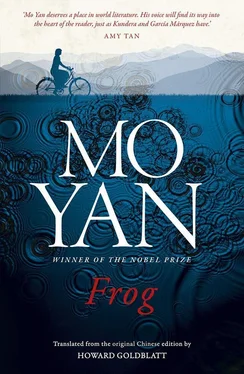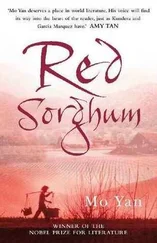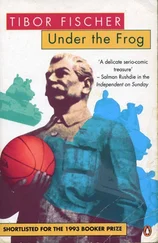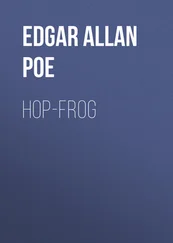Gugu gave her tit for tat: Don’t think I don’t know that you, Huang Qiuya, are a capitalist’s daughter and were the campus queen in med school. Did you wave a flag to welcome the arrival of the Japanese into the city? Did you dance cheek to cheek with Japanese officers? Well, when you were dancing with them, I was in Pingdu engaged in a battle of wits with the Japanese commander there.
The woman sneered. Got any witnesses? I’d like to know who saw you have your battle of wits with the commander.
The mountains and rivers are my witnesses.
I couldn’t, I mustn’t, under any circumstances let Gugu see that handbill, not now.
What are you doing here? she asked unhappily. And what’s this?
A reactionary handbill, one of the KMT’s reactionary handbills. My voice quavered with excitement.
Gugu barely looked at it, but I saw her body tense, a spasm like she’d been shocked. Her eyes grew wide, the blood fled from her face. She flung the handbill away as if it were a snake — no, a frog.
When she had regained her composure and bent down to retrieve it, she was too late.
Huang Qiuya had already picked it up and examined it. She looked up, glanced at Gugu, and took another look at the handbill. A green glare emerged from behind those dark glasses. That was followed by an icy laugh.
Gugu sprang at the woman to snatch the handbill back, but Huang spun around to prevent that. So Gugu grabbed the back of Huang’s smock and shouted, Give me that!
Huang lurched forward to free herself, and we heard her smock rip, exposing her back, which was the white of a frog’s belly.
I said give me that!
Huang turned around, but held the handbill behind her back; she was shaking as she moved slowly towards the door.
Give it back? she said with a sinister, smug look. Hah! You dog of a spy, defector’s woman. The defector took all he wanted from you, you slut! Scared, are you? Have you quit selling the stink of your so-called martyr’s descendant?
Gugu, maddened by the comment, charged Huang.
Huang ran into the corridor. We’ve got a spy! she cried. Come catch the spy!
Gugu followed her into the corridor, where she grabbed her by the hair; even with her neck bent back, Huang thrust the handbill out in front, her cries even more shrill. Treatment rooms were in the front of the health centre, offices in the rear. Everyone heard her cries and came into the corridor to see what was happening. Gugu had by then pushed Huang to the floor and was straddling her as she fought to retrieve the handbill.
The director, a bald, middle-aged man, ran up. He had bags under his long, narrow eyes and blindingly white false teeth. Stop that! he shouted. What’s going on?
Gugu fought harder to pry open Huang’s fingers, apparently not hearing the director. By this time Huang Qiuya’s screams had turned into tearful wails.
Stop that, Wan Xin! the director demanded angrily. And you people, he said loudly to the rubberneckers, have you all gone blind? Pull those two apart!
Two male doctors went up and, with difficulty, pulled Gugu off Huang.
Two female doctors picked Huang up off the floor.
Huang’s dark glasses had fallen off and there was a trickle of blood from her gums. Cloudy tears poured from her sunken eyes. But she was still clutching the handbill. Director, she bellowed, you have to back me on this!
Gugu’s clothes were pulled this way and that, and her face was ashen. A pair of bloody gouges marred her cheeks, obviously from Huang Qiuya’s nails.
What’s this all about, Wan Xin?
Gugu’s face wore a desolate smile; tears fell from her eyes. She threw the torn pieces of the handbill in her hand to the floor and, without a word, walked unsteadily back to the ward.
Like someone who has performed heroically under brutal circumstances, Huang Qiuya handed the crumpled remains of the handbill to the director and then got down on her hands and knees to feel around for her glasses, which she found and put back on, holding them to her face since one of the arms was broken. When she saw the torn pieces Gugu had thrown away, she frantically scooped them up, as if she’d found hidden treasure.
What’s this? asked the director as he smoothed out the handbill.
A reactionary handbill, said Huang as she handed him the torn fragments, as if they were treasured gifts. Don’t forget these, they’re the rest of what the defector Wang Xiaoti sent to Wan Xin.
The curious doctors and nurses were transfixed.
Suffering from a case of far-sightedness, the director held the handbill out at arm’s length so he could read it. The doctors and nurses crowded around him.
What are you people looking at? What’s there to see? Get back to work, he scolded as he put away the handbill. Come with me, Dr Huang.
The doctors and nurses wasted no time in sharing their views of the incident as Huang followed the director to his office.
Gugu’s heart-rending wails erupted from the obstetrics ward, and I was suddenly aware of what a destructive thing I’d done. I stepped nervously into the ward, where I saw Gugu sitting with her head down on a table, crying and pounding her fists on the tabletop.
Gugu, I said, Mother sent me over with some rabbit for you.
She ignored me, just kept crying.
I laid my bundle down on the table, opened it, and placed the bowl of rabbit meat next to her head.
Gugu swept the bowl off the table with her arm. It shattered on the floor.
Get out of here! Go! Go! She raised her head to scream at me. Get out of my sight, you little bastard!
It wasn’t until later that I realised just how terrible the thing I’d done was.
After I fled from the health centre, Gugu slit her left wrist, then dipped her right index finger in the blood and wrote: I hate Wang Xiaoti! I have always been a Party member, and I will die a Party member!
When Huang Qiuya returned triumphantly to the ward, Gugu’s blood had seeped all the way to the door. Huang shrieked before crumpling to the floor.
Gugu was saved, and placed on probation by the Party. The reason was not that her relationship with Wang Xiaoti remained suspicious, but that she had tried to use suicide to show the Party what she was capable of.
Northeast Gaomi Township enjoyed an unprecedented harvest from its thirty thousand acres of sweet potatoes in the autumn of 1962. After putting us through three abominable years, soil that had refused to grow anything regained its bountiful generosity and its innate ability to nourish. Each acre produced a record of more than ten thousand jin of sweet potatoes that year, and the mere recollection of that year’s crop made me sense a stirring for some reason. A rich yield of sweet potatoes lay beneath the ground. The largest potato unearthed in our village came in at thirty-eight jin. A photo of Yang Lin, the county’s Party secretary, holding it appeared on the front page of Masses Daily .
Sweet potatoes are wonderful, truly wonderful. It was not only a bumper crop in terms of quantity, but the potatoes were rich in starches, they cooked up with a perfect texture, and they tasted a bit like chestnuts, delicious with high nutritional value. Sweet potatoes were piled in every family’s yard, wire was strung along every wall to hang slices of drying sweet potatoes. We had enough to eat, finally enough to eat. No more days of eating grass or the bark of trees; the days when people starved to death were gone, never to return. Before long our legs stopped suffering from oedema; the skin around our middle thickened, and our bellies flattened out. A layer of fat began forming under our skin, light returned to our eyes, and our legs no longer ached when we walked; we started to grow, to really grow. At the same time, women’s breasts swelled and their periods returned to normal. Men’s torsos straightened, whiskers reappeared above their lips, their sex drive was reawakened. After two months of eating their fill of sweet potatoes, all the young women in the village were pregnant it seemed. In the early winter of 1963, Northeast Gaomi Township experienced the first baby boom in the history of the People’s Republic. Two thousand eight hundred sixty-eight babies were born that year in the fifty-two villages incorporated in our commune alone. According to Gugu, this crop of babies was known as the ‘sweet potato kids’.
Читать дальше












